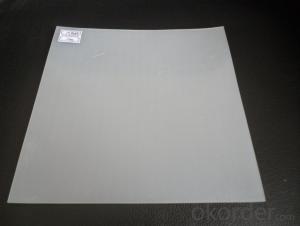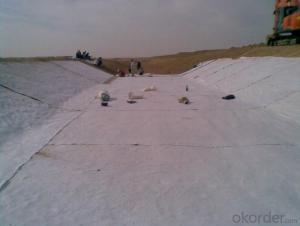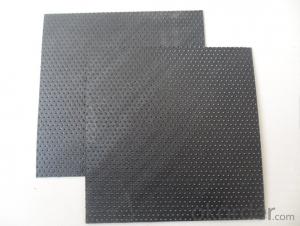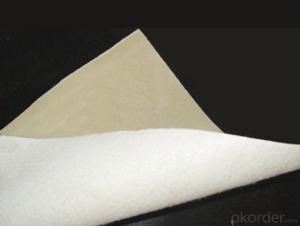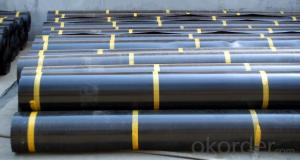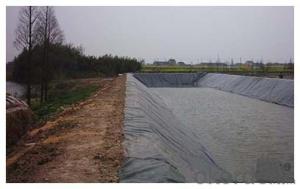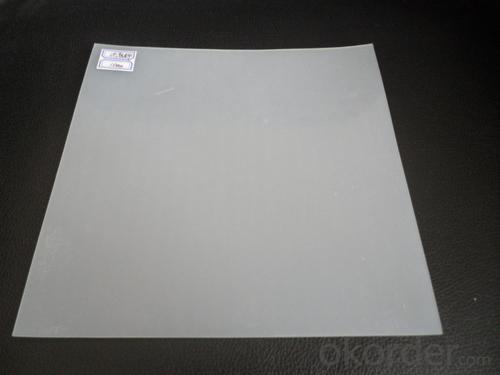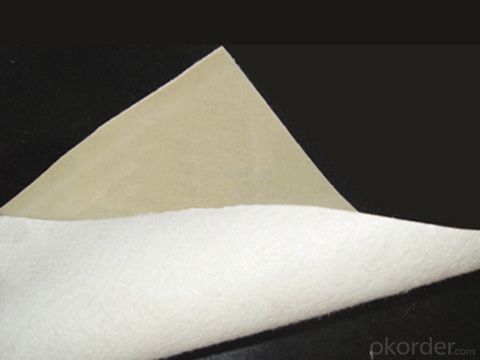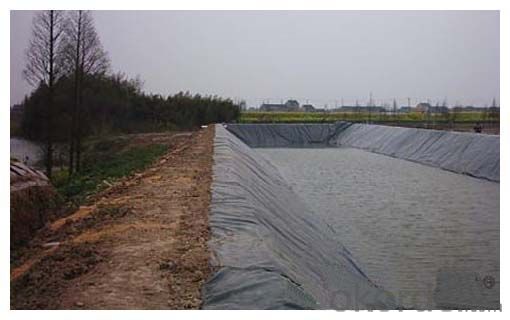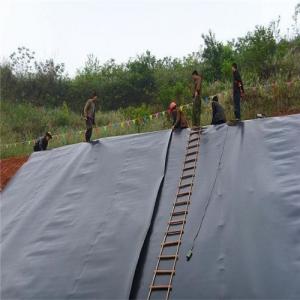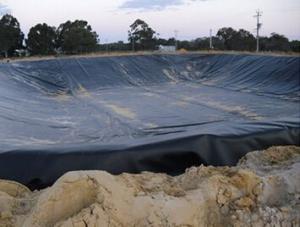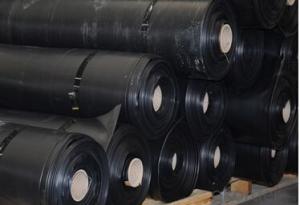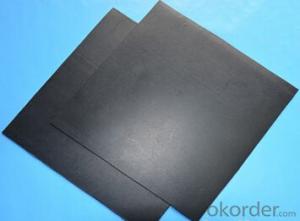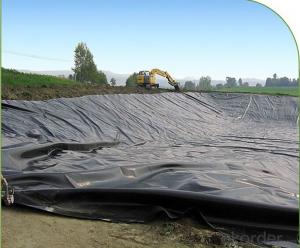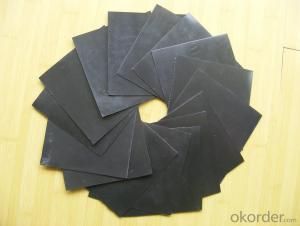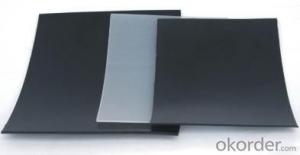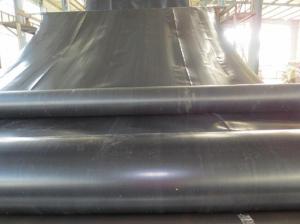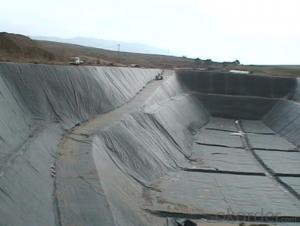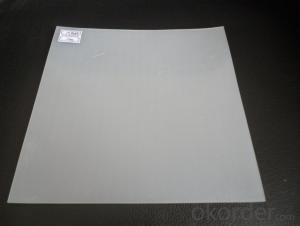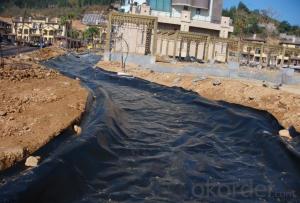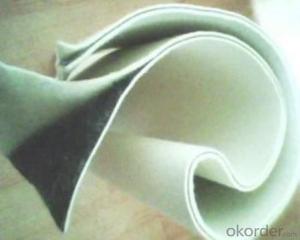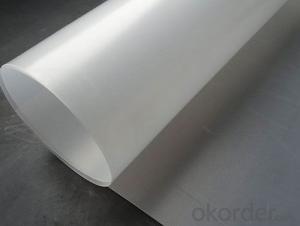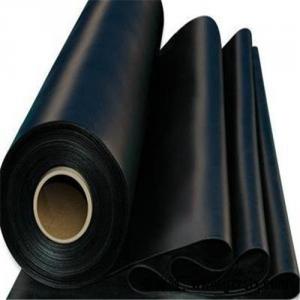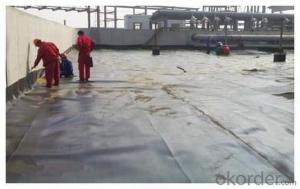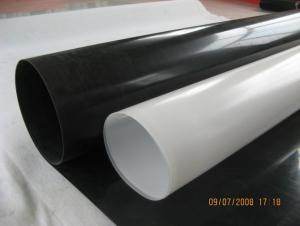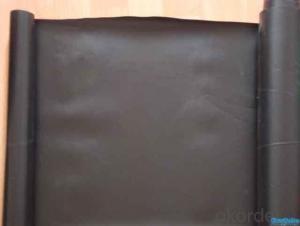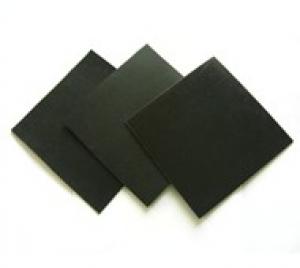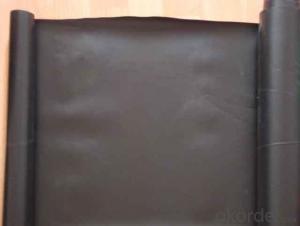Tanque De Geomembrana HDPE Geomembrane for Landfill to Prevent Wastewater
- Loading Port:
- Qingdao
- Payment Terms:
- TT OR LC
- Min Order Qty:
- 5000 m²
- Supply Capability:
- 500000 m²/month
OKorder Service Pledge
OKorder Financial Service
You Might Also Like
Fish Farm Pond Liner Images
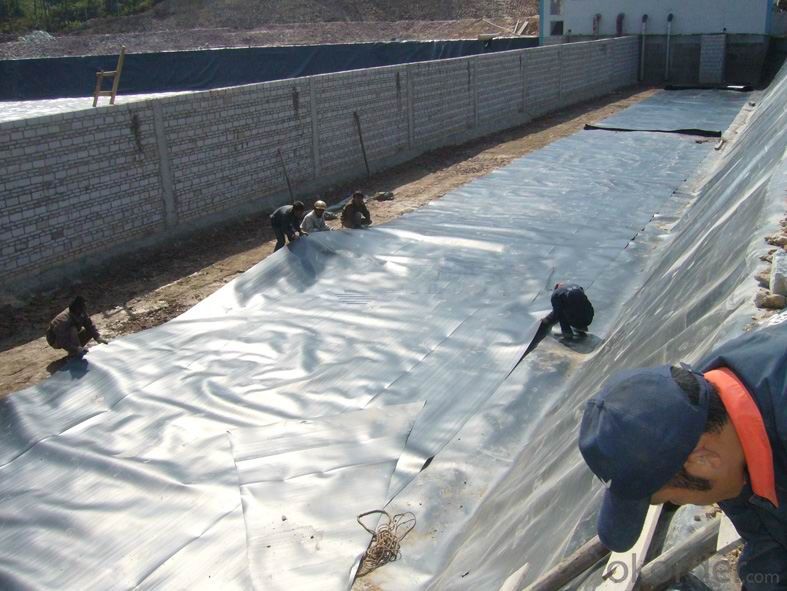
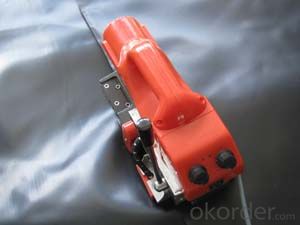
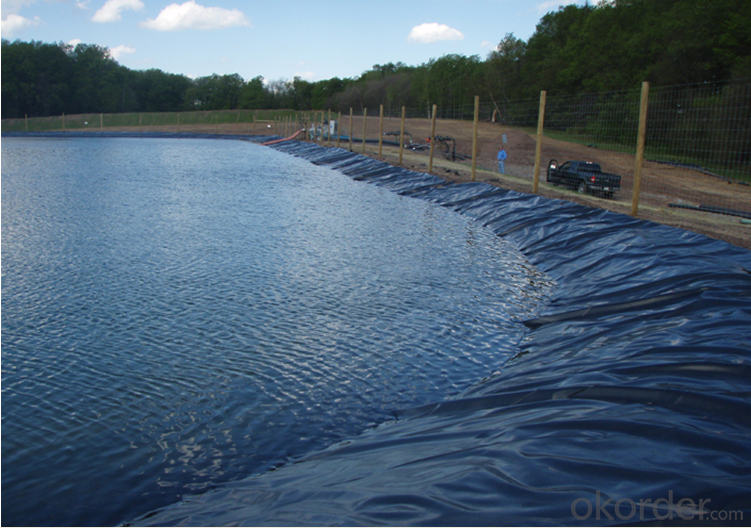
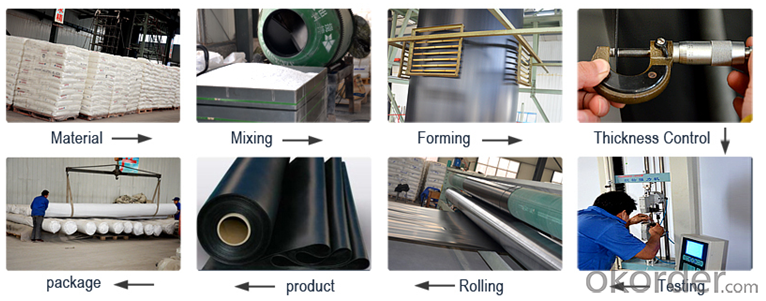
Hdpe Geomembrane for Landfill Specification :
No. | Item | Test Value | |||||||
0.75mm | 1.0 mm | 1.25 mm | 1.5 mm | 1.8mm | 2.0mm | 2.5 mm | 3.0mm | ||
1 | Minimum Density(g/cm³) | 0.94 | |||||||
2 | Strength at yield,N/mm | 11 | 15 | 18 | 23 | 27 | 30 | 38 | 45 |
3 | Strength at break ,N/mm | 21 | 28 | 33 | 43 | 51 | 57 | 71 | 85 |
4 | Elongation at yield,% | 13 | |||||||
5 | Elongation at break,% | 700min | |||||||
6 | Tear Resistance N | 93 | 125 | 156 | 187 | 219 | 249 | 311 | 373 |
7 | Puncture Resistance N | 263 | 352 | 440 | 530 | 618 | 703 | 881 | 1059 |
8 | Stress Crack Resistance, hrs | 400 | |||||||
9 | Carbon Black Content, % | 2.0-3.0 | |||||||
Carbon Black Dispersion | 1 or 2 | ||||||||
10 | Standard OTI Min | 100 | |||||||
High Pressure OTI Min | 400 | ||||||||
11 | Impact Cold Crack at -70°C | Pass | |||||||
12 | Water vapor permeability (g.cm/cm2 .s.Pa) | ≤1.0×10-13 | |||||||
13 | Dimensional Stability (%) | ±2 | |||||||
FAQ:
1. How about the delivery time?
Two weeks upon receipt of down payment.
2. What kind of payments do we accepted?
T/T, L/C, WesternUnion, MoneyGram.
3. What's are the MOQ?
Normally the MOQ is 5000 SQM in theory.
And we can provide you free samples for quality inspection.
4. Do you charge for the samples?
Accordeing to our company policy, the samples are freee, we only charge the freight fee. And we will return the freight fee in your second order.
5. Can you produce the product according to customers' requirements?
Sure, we are professional manufacturer, OEM and ODM are both welcome
- Q: Can geomembranes be used in agriculture?
- Yes, geomembranes can be used in agriculture. They are often utilized for various applications such as lining irrigation ponds, reservoirs, and canals to prevent water leakage and seepage. Additionally, geomembranes can be used for lining manure storage pits, silage bunkers, and other agricultural waste containment structures to prevent environmental contamination.
- Q: Can geomembranes be used in contaminated site remediation?
- Yes, geomembranes can be used in contaminated site remediation. They are often used as barriers to prevent the migration of contaminants, such as oil, chemicals, or radioactive materials, into surrounding soil or water sources. Geomembranes are impermeable liners that can be installed to isolate and contain the contaminated materials, providing a protective layer and preventing further spread of the pollutants. Additionally, geomembranes can also be used in conjunction with other remediation techniques, such as soil vapor extraction or bioremediation, to enhance their effectiveness in cleaning up contaminated sites.
- Q: What are the installation requirements for geomembranes in landfill caps?
- The installation requirements for geomembranes in landfill caps typically include preparing the subgrade, ensuring proper slope and drainage, conducting a leak detection survey, and installing protective layers such as geotextiles and geocomposites. Additionally, a quality control plan should be in place to monitor the installation process and ensure compliance with regulatory standards.
- Q: What are the characteristics of membrane touch switch?
- It has the characteristics of small volume, powerful function, stability and convenient operation.
- Q: Can geomembranes be used for wastewater treatment lagoons?
- Yes, geomembranes can be used for wastewater treatment lagoons. They are often used as liners or covers for containment of wastewater, preventing leakage or seepage into the surrounding soil or groundwater. Geomembranes provide an effective barrier, improving the overall efficiency and effectiveness of wastewater treatment processes in lagoons.
- Q: How do geomembranes perform in high humidity gas containment applications?
- Geomembranes perform well in high humidity gas containment applications due to their excellent moisture resistance and impermeability. They are specifically designed to prevent the escape of gases and vapors, even in humid conditions. The geomembrane's ability to effectively seal and contain gases makes it a reliable solution for applications where high humidity is present.
- Q: How do geomembranes contribute to erosion control?
- Geomembranes contribute to erosion control by acting as a barrier between the soil and water, preventing soil erosion caused by water flow. They effectively prevent the loss of soil particles and provide stability to slopes, embankments, and channels, reducing the risk of erosion and sedimentation. Additionally, geomembranes can control the movement of water, redirecting it towards desired areas and minimizing the impact of water erosion on the surrounding environment.
- Q: How long is the service life of electrothermal?film?
- The service life of electrothermal?films should be 50 years at maximum.
- Q: What are the requirements for geomembranes used in aquaculture ponds?
- The requirements for geomembranes used in aquaculture ponds include being durable, puncture resistant, and able to withstand UV exposure. They should also be impermeable to prevent leakage and seepage of water. Additionally, the geomembranes should be resistant to chemicals and have low permeability to gases to maintain optimal water quality in the pond.
Send your message to us
Tanque De Geomembrana HDPE Geomembrane for Landfill to Prevent Wastewater
- Loading Port:
- Qingdao
- Payment Terms:
- TT OR LC
- Min Order Qty:
- 5000 m²
- Supply Capability:
- 500000 m²/month
OKorder Service Pledge
OKorder Financial Service
Similar products
Hot products
Hot Searches
Related keywords
